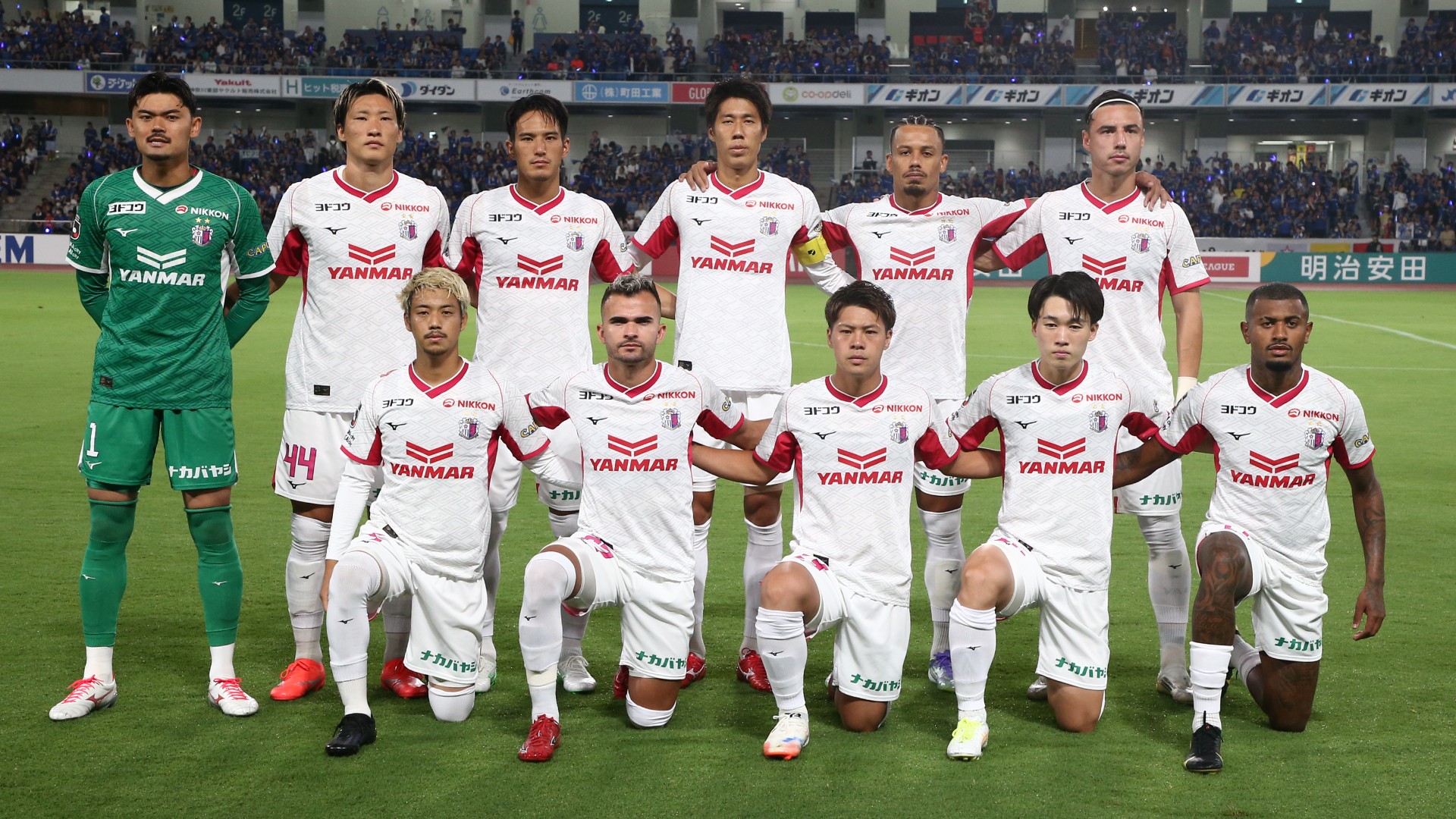Review: FC Machida Zelvia 3-0 Cerezo Osaka (J1 MD26)
- TEAM
Cerezo, aiming for revenge and a climb up the table, fell 0-3 to FC Machida Zelvia after conceding twice in the first half and failing to hit back.

Coming off their first league victory in three matches against Albirex Niigata four days earlier, Cerezo Osaka traveled away to face FC Machida Zelvia in the 26th round of the Meiji Yasuda J1 League. There were two changes to the starting lineup from the Niigata match: Masaya Shibayama and Shion Homma made way, with Rafael Ratao and Thiago Andrade starting..jpg)
As a countermeasure against Machida’s right wing-back Henry Heroki Mochizuki, who often pushed high and wide and was targeted with long balls, Cerezo set up in a [5-4-1] shape out of possession with Shunta Tanaka dropping into the back line to form a back three when defending. “(The opponents) leave a player wide on the outside, so we wanted to line up with five (at the back) to immediately match up against their wing-backs when the ball was switched,” explained manager Arthur Papas after the match. Cerezo had been punished by wing-backs several times before when facing teams that play with a back three. Mochizuki, in particular, stands at 192cm, making it an unfavorable matchup for Hayato Okuda to slide over and deal with him. The tactical adjustment was understandable, but from the outset the back line sank too deep, leaving Cerezo sitting in an overly defensive block. That meant the front line could not press, allowing Machida to advance the ball easily and forcing Cerezo onto the back foot. They were spared in the 8th minute when a goal was disallowed for offside, but conceded in the 22nd: Yuki Soma broke through and delivered a cross, Thiago’s attempted clearance was incomplete, and Na Sang Ho pounced with a fierce strike from distance. Again, the defensive line had dropped too deep, closing down far too late. Goalkeeper Koki Fukui, facing his former club, kept out Yuta Nakayama’s long-range effort in the 35th minute, but in the 42nd, a single vertical pass from Gen Shoji split the defense and Kotaro Hayashi finished for Machida’s second. Against such a resolute defensive side, trailing by two goals at halftime was a heavy blow. On the attacking side, Cerezo also struggled. “As soon as we won the ball, our transition was too heavy at the back and we couldn’t generate the forward thrust we needed,” admitted Shinnosuke Hatanaka. In possession, Cerezo returned to their usual [4-2-3-1], with Motohiko Nakajima starting as the attacking midfielder. He managed two efforts on goal, but overall the team failed to display the attacking identity of “Papas Cerezo” in the first 45 minutes..jpg)
.jpg)
Chasing two goals in the second half, manager Papas substituted Nakajima and Hinata Kida for Shinji Kagawa and Kyohei Yoshino, returning to Cerezo’s usual style of play. With Cerezo now on the offensive and Machida sitting back with a two-goal lead, the early stages of the second half saw Cerezo mounting a relentless attack. In the 53rd minute, Yoshino won the ball high up the pitch, quickly feeding it forward to Tanaka, who combined with Ratao in a one-two with Thiago Andrade to create a clear chance, but the shot was saved by goalkeeper Kosei Tani. Another opportunity came from a short-corner variation on the following set piece, connecting Thiago, Kagawa, and Tanaka before Ratao once again had a chance, only for the shot to be blocked by a defender. In the 60th minute, Ratao received a through ball from Lucas Fernandes and had another chance, but was denied once more by Tani. “Cerezo showed good reactions in the second half. There were three big chances, and if we had managed to score, the game could have been very different,” manager Papas reflected. Despite the opportunity to change the match’s outcome, Machida held firm, and in the 64th minute, the tall Oh Se Hun and Keiya Sento were brought on. In the 79th minute, a cross from Soma found Oh Se Hun, who scored Machida’s third goal, effectively deciding the match. Cerezo continued to fight until the final whistle. Before conceding the third goal, Homma and Ayumu Ohata, playing on the left side, attempted to break through the defense with coordinated runs. Making his debut for Cerezo, Ohata said, “I’m good at linking up in tight spaces to create openings, and I want to continue showing that.” In the 87th minute, Reiya Sakata replaced Fernandes. Cerezo repeatedly reached Machida’s goal in the second half, but could not find the crucial goal..jpg)
.jpg)
About four months had passed since the previous meeting. Although Cerezo wanted to show the growth achieved during that period—earning 24 points in 12 league matches—the team suffered a complete defeat, feeling the full force of Machida’s momentum, which had won ten consecutive official matches, as manager Papas pointed out that there were “many scenes where we lost” in duels, a point he highlighted before the match. However, there is no time to hang heads. “Next is Vissel (Kobe), and after that Sanfrecce (Hiroshima). Teams similar (to Machida) will continue, so it is important as a team to make use of this loss. We must not repeat the same mistakes and have no choice but to accept today’s defeat and move forward,” Kagawa said. In August, with a series of high-intensity opponents, the lessons from this match need to be carried into the next games..jpg)